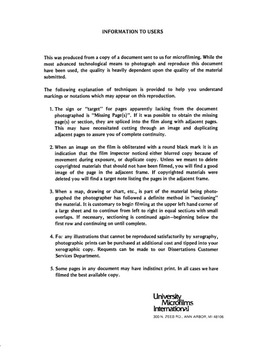| dc.contributor.author | Beirne, Thomas J., | en_US |
| dc.date.accessioned | 2013-08-16T12:28:21Z | |
| dc.date.available | 2013-08-16T12:28:21Z | |
| dc.date.issued | 1981 | en_US |
| dc.identifier.uri | https://hdl.handle.net/11244/4866 | |
| dc.description.abstract | The discussion then covers the period 1962 through 1980 where the significant court cases testing the legislation are analyzed and the changes made to sections 951 through 1964 are presented. An attempt was made to trace any change back to the outcome of a particular court case. | en_US |
| dc.description.abstract | Conclusions. (1)There have been many attempts made by congress to tax the undistributed income of a corporation, but very few of them have withstood the test of time. Only those remain which were based upon the premise of removing the possibility of tax avoidance. Those measures founded upon premises such as the raising of additional revenues, did not last long. Any attempt to eliminate the deferral privilege will meet with deafeat unless it is designed to stop a tax avoidance scheme. (2)Sections 951 through 964 of the Code have been tested many times during the period 1962 through 1980. Very few of these cases were found in favor of the taxpayer. Only those cases where tax avoidance was proven not to be a factor, did the court allow the taxpayers' position to stand. Since most of the court cases were found in favor of the Internal Revenue Service, and no change can be specifically traced to the outcome of any particular case, the intent of congress in passing this legislation was interpreted correctly in the courts in the period of enactment. (3)President Kennedy wanted to set tax policy which was neutral in its effect upon managerial decisions and one that would promote equality by taxing like income at like rates. The deferral privilage does not allow for tax equality. However, neutrality in terms of dividend policy has been reached in all cases where a U.S. parent is operating a foreign subsidiary in a country with a tax rate which is either above or equal to that of the United States. In order to achieve both neutrality and equality, either the deferral privilege must be eliminated in its entirety, or the deferral privilege extended to domestic corporations operating through branches in the foreign market place. If the deferral privilege cannot be extended or eliminated, tax neutrality and tax equality will never be achieved in U.S. tax policy toward international business. | en_US |
| dc.description.abstract | This study was an investigation into the area of the taxation of undistributed income and the effect that this taxation had upon the enactment of the statutes identifying the controlled foreign corporation. After tracing the development of the various laws affecting the taxation of undistributed income and the development of laws taxing the income of foreign corporations controlled by U.S. owners, the investigation then analyzes the pertinent events of 1953-1962. These events led to the enactment of legislation which was the antithesis of what was expected as a result of the studies made during this period. | en_US |
| dc.description.abstract | The results of any changes made to the taxation of a controlled foreign corporation during the period 1913 through 1980, are shown in terms of the effect upon overall tax rates incurred by such a corporate group. This effect is shown for subsidiariers operating in countries with tax rates both above and below that of the United States to determine the possible effect upon divided policy. | en_US |
| dc.format.extent | viii, 141 leaves : | en_US |
| dc.subject | Business Administration, General. | en_US |
| dc.title | An investigation into the taxation of undistributed income sections 951 through 964 of the Internal Revenue Code [for] the controlled foreign corporation. | en_US |
| dc.type | Thesis | en_US |
| dc.thesis.degree | Ph.D. | en_US |
| dc.thesis.degreeDiscipline | Michael F. Price College of Business | en_US |
| dc.note | Source: Dissertation Abstracts International, Volume: 42-02, Section: A, page: 0769. | en_US |
| ou.identifier | (UMI)AAI8116757 | en_US |
| ou.group | Michael F. Price College of Business | |
